China’s Recovery From Pandemic Better Than Expected, PBOC Chief Says (Video)
China’s rebound from the Covid-19 epidemic has so far been better than expected and economic growth in the second half of the year will continue to gradually improve to “more or less the potential growth rate,” central bank Governor Yi Gang said, although he cautioned that much will depend on how the rest of the world recovers.
Speaking at an online roundtable organized by Caixin on April 17, Yi said that throughout the outbreak of the virus, China’s strategy was to make safeguarding lives the top priority, which inevitably had a significant impact on the economy. Macroeconomic policy was focused on stabilizing employment and the People’s Bank of China (PBOC) played its role by supporting companies, especially small and midsized enterprises, and trying to help them in terms of cash flow.
Read more
Summers Warns of More Layoffs, Cascading Debt Problems Amid Pandemic
“Very strong financial support has supported the recovery of the economy,” said Yi, who took the helm at the PBOC in March 2018 following the retirement of former governor Zhou Xiaochuan. The central bank implemented a “very important bank loan rollover program and allowed small and medium enterprises to have some period of time, a grace period, for interest payments, for the principal payment, so that they can roll over their debt and alleviate some cash flow pressure for small enterprises. And the purpose of doing that is to try to minimize layoffs. We know that it’s small and medium enterprises who create most of the employment, so I think that strategy has paid off.”
China’s financial inclusion strategy, which is aimed at increasing the range of financial products and services available to mostly low-income segments of the population usually locked out of the traditional banking system, has also helped, Yi said. He highlighted the role played by financial technology companies who provide efficient mobile payment services in particular.
Inclusive finance
“If you look at the fighting of Covid-19, I think our digital commerce, digital orders and delivery played a very important role in the past three months,” Yi said. “So that is, I think, one reason that during the pandemic, basic services like everyday life supplies and necessities, commodities in China have been in relatively abundant supply with orderly shipping to consumers. Even in the worst place, Wuhan, they can still have groceries and other supplies delivered to their households. Even if they cannot go out with their family, still, some people can deliver to their door. In this effort, certainly the digital economy and digital commerce played a very important role.”
Tech giants such as Ant Financial Services Group, an affiliate of e-commerce giant Alibaba Group Holding Ltd., and Tencent Holdings Ltd., have played a key role in expanding inclusive finance by providing billions of yuan of small loans to individuals and businesses. They now dominate online payments and in spite of the rapid growth in their lending businesses, they represent a tiny part of the country’s total lending, with the bulk still coming from commercial banks.
Yi said he would like to see the tech companies provide more competition for traditional banks. “[T]hey make better services, they use big data, they can control nonperforming loans and they know more information about their clients,” he told the roundtable. “That’s also a hint to commercial banks to improve their services.”
China’s central bank has been at the forefront of global efforts to develop a sovereign digital currency. In 2014 the PBOC set up a dedicated research team which published a series of reports on the subject. In 2016 the central bank decided to set up a research institute which was officially launched in December 2017.
The PBOC last month confirmed that some state-owned banks are trialing an electronic payment system in four regions using the new currency, but it has given no timetable for the introduction of its digital currency electronic payment program, known as DCEP. As well as closed-system trials in Suzhou, Xiong’an, Chengdu and Shenzhen, the PBOC is also testing hypothetical scenarios for the 2022 Winter Olympics to optimize and improve the currency’s functionality.
Market opening
Yi told the Caixin roundtable that the DECP program “has made very good progress,” but that the central bank will be “cautious in terms of risk control, especially to study anti money-laundering and ‘know your customer’ requirements to incorporate in the design and system of DCEP.”
Yi also reiterated pledges made by China’s top leaders to continue the country’s reform and opening-up policy and said the rest of the world will get more access to domestic financial markets.
“We welcome the most competitive banking, securities and insurance companies to come to China,” he said. “And in terms of the list of opening financial services such as electronic payments, ratings and also for licenses and for equity control, I think we have been doing those reforms and opening up one by one.”
In terms of making it easier for foreign companies to access China’s markets, Yi said, “[W]e are going to continue to work on the barriers and to remove the red tapes on China’s domestic equity and fixed-income market and make it basically open to the entire world.”
Asked about the impact rising anti-globalization sentiment could have on opening-up and the internationalization of the yuan, also known as the renminbi (RMB), Yi said, “We still think that opening-up and globalization help increase productivity and help lifting people from poverty, and the general direction is correct.”
The internationalization of the yuan should be “totally market driven,” Yi said. “We try to provide the infrastructure, we try to liberalize our restrictions in the past which may restrict RMB use overseas and restrict RMB as the capital account, unit account and payment, and so on… We want to treat all the currencies equal so that it’s up to the market to decide which currency they are going to use.”
International cooperation is “very important,” he added. “Whether fintech and central bank digital currency, I’m fully open to potential cooperation with main central banks and also together within our region.”
The Caixin roundtable, which focused on the themes of fintech and the yuan as a freely usable currency, brought together multiple government officials, economists and industry leaders, including Lawrence Summers, Charles W. Eliot University Professor at Harvard University and former U.S. Treasury Secretary; Eddie Yue Wai-man, chief executive of the Hong Kong Monetary Authority; Gita Gopinath, chief economist at the International Monetary Fund; Barry Eichengreen, economics professor at the University of California, Berkeley; Siddharth Tiwari, chief representative for Asia and the Pacific of the Bank for International Settlements; and Mark Machin, president and CEO of the Canada Pension Plan Investment Board.
Contact reporter Timmy Shen (hongmingshen@caixin.com) and editor Nerys Avery (nerysavery@caixin.com)
Caixin Global has launched Caixin CEIC Mobile, the mobile-only version of its world-class macroeconomic data platform.
If you’re using the Caixin app, please click here. If you haven’t downloaded the app, please click here.
- GALLERY
- PODCAST



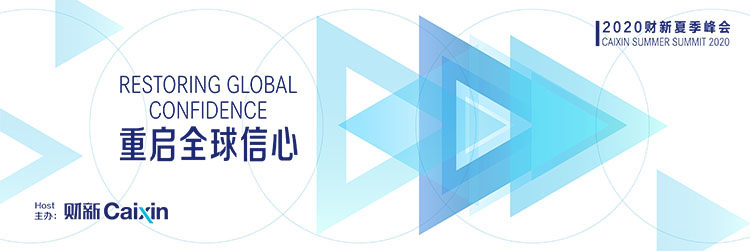
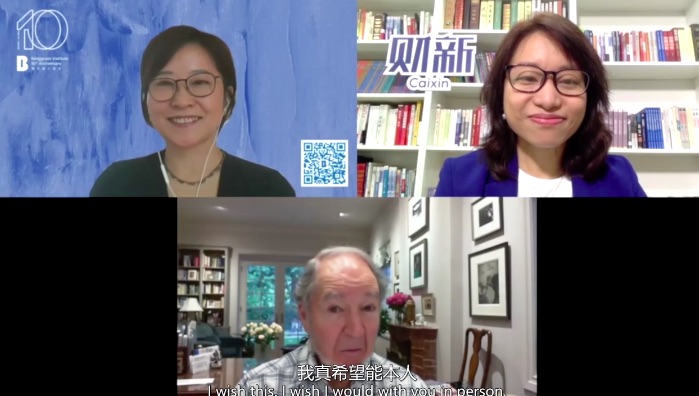
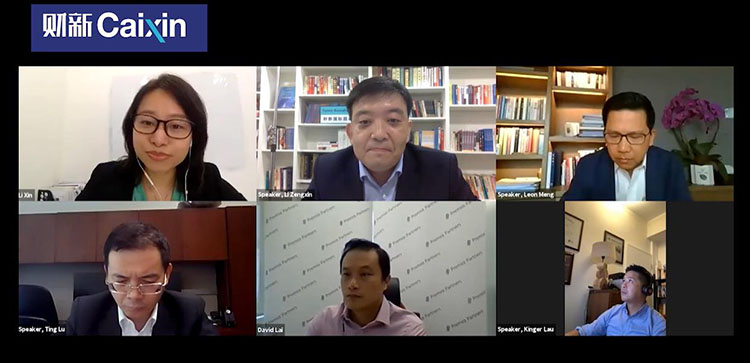
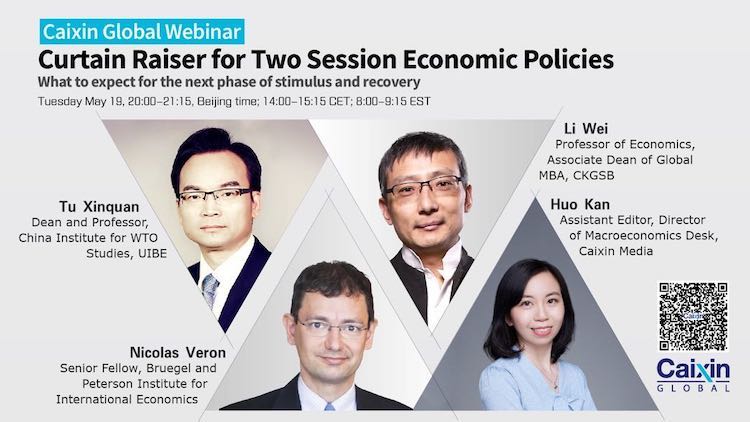
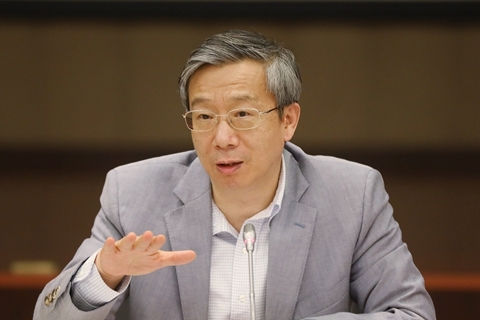



 Sign in with Google
Sign in with Google
 Sign in with Facebook
Sign in with Facebook
 Sign in with 财新
Sign in with 财新